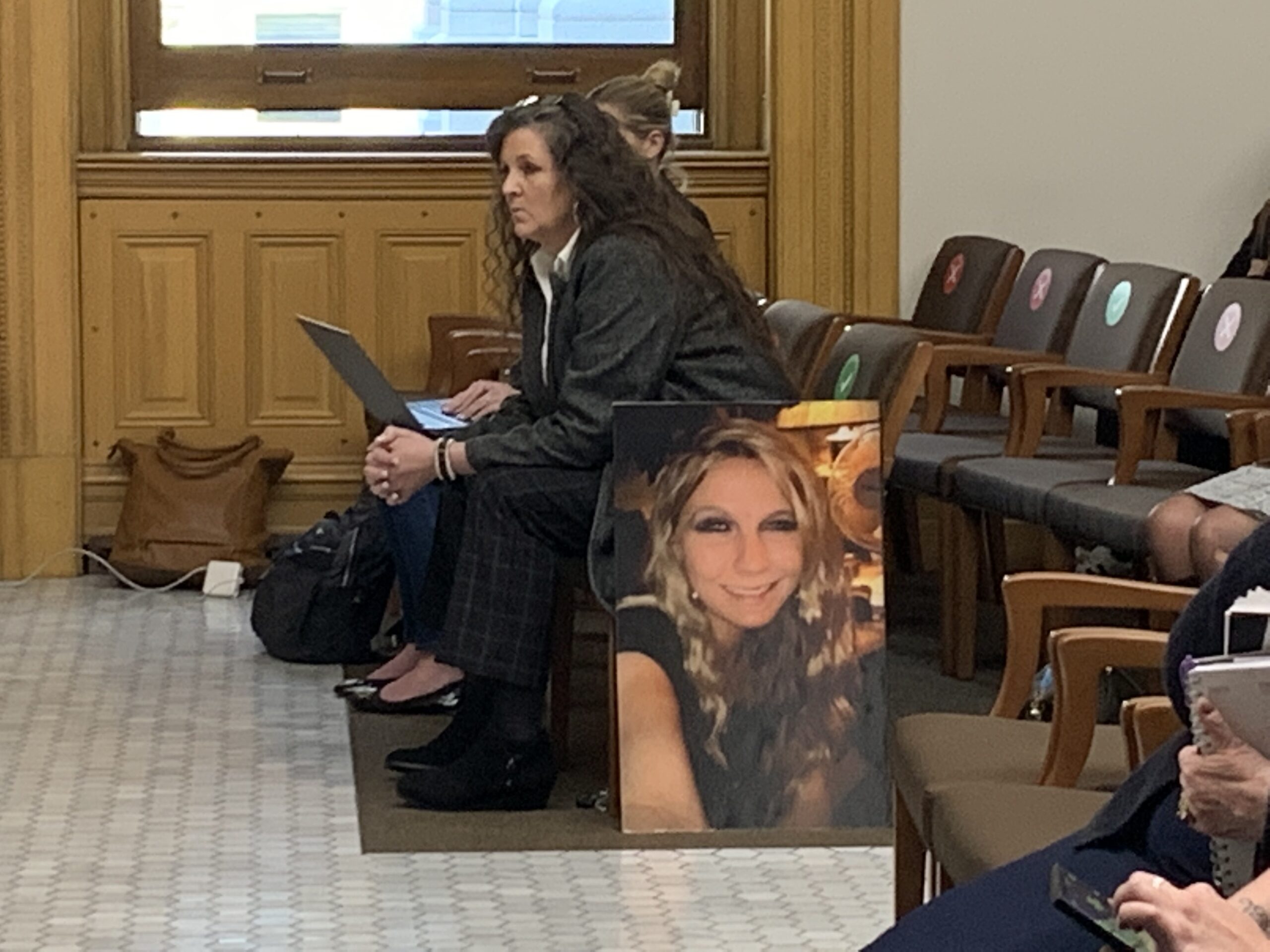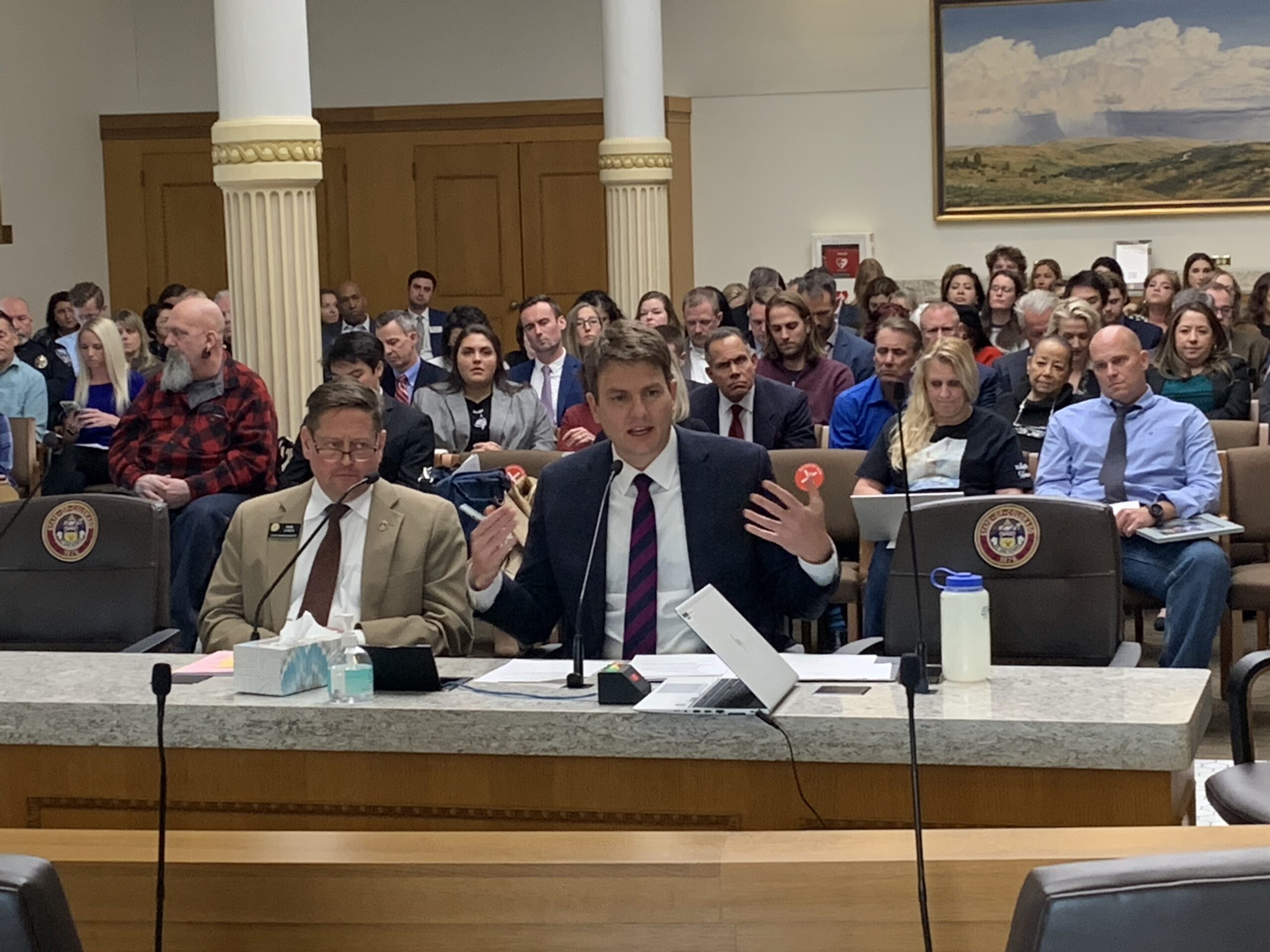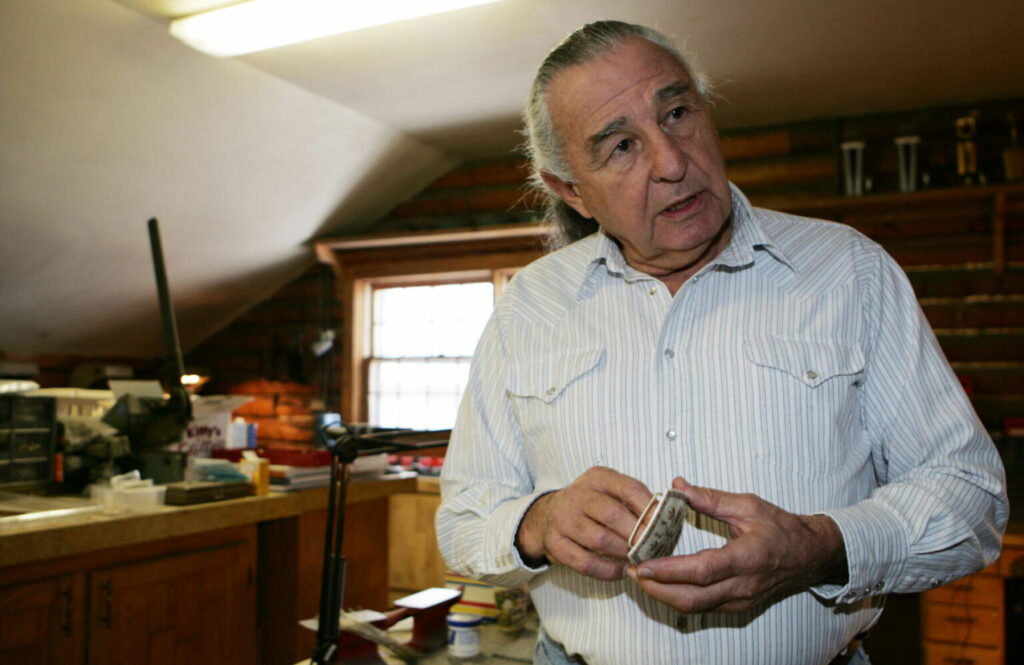Felony for expungement: Arapahoe sheriff offers compromise on fentanyl bill

Law enforcement advocates are pursuing a compromise to make possession of any amount of fentanyl a felony but allow for the expungement of the criminal record upon completion of certain programs, such as drug treatment or diversion.
Arapahoe County Sheriff Tyler Brown told Colorado Politics that offer was “met with resistance” when he and others met several weeks ago with the group that crafted House Bill 1326, the legislature’s sweeping attempt to address the worsening fentanyl crisis, but that he hopes policymakers would reconsider it.
Lawmakers are debating the measure amidst surging fentanyl overdoses in Colorado. Nearly 900 Coloradans fatally overdosed after ingesting fentanyl in 2021, a number that’s quadrupled since 2019. Though Colorado’s fatal overdose rate for synthetic drugs, of which fentanyl is the most prevalent, is below the national average, the state’s rate has grown faster than nearly any other state since 2018.
Brown said he is working to get the idea offered up as an amendment once HB 1326 reaches the House floor for a debate. The House Judiciary Committee advanced the bill last week following two days of hearing. Its next stop is the House Appropriations Committee.
Brown framed the proposal as providing law enforcement the necessary leverage to get an individual into treatment, while also offering a “light at the end of the tunnel” for the person facing the felony charge. He added that his county’s district attorney is open to exploring the idea.
The felony charge, he said, signals to the public the seriousness of the crisis and that the state, through its laws, is not “not normalizing” this drug use.
“This one pill will kill and so any weight that we are saying is okay is almost legitimizing (it) – well it just has to be and I don’t think this has to be,” Brown said, adding his proposal “forces the treatment side of things, and there’s a light at the end of the tunnel.”
Law enforcement officials, he said, have heard from the testimony of family members who lost loved ones to fentanyl.
“The sister of the female party who died in Commerce City – who was poisoned; she essentially thought she was consuming something else – said if that was the case and she had a choice between a felony or being dead, she would take the felony so she could raise her kids,” Brown said.
Brown also sought to refute testimony that people can’t be forced into treatment, noting Arapahoe County’s detention facility has treated nearly 600 individuals over the last four years through its medicated assisted treatment programs.
Harm reduction advocates and health care experts oppose any efforts to make simple drug possession a felony, arguing no evidence shows that approach is successful in stopping overdoses and deaths. They also say “felonization” reverts Colorado back to the failed policies of the “War on Drugs.” Law enforcement and some city officials, notably the mayors of Denver and Colorado Springs, counter that fentanyl is so deadly that one pill laced with a small amount of the drug can kill. They argue that the only logical approach is to make its possession, regardless of the amount, a felony offense.
Christie Donner, executive director of Colorado Criminal Justice Reform, said Brown’s proposal is “not really a compromise.”
“That’s going back to what it was before. We’ve had record sealing on drug possession for years,” she told Colorado Politics in an email. “I find it highly unlikely that the DAs will spend the effort to get someone into treatment, assuming the right level of treatment even exists in the jurisdiction.”
She added: “The underlying assumption by Sheriff Brown and others in law enforcement is that having the felony to ‘hammer’ someone is effective in getting them to agree to go to treatment, and the research is pretty clear that it doesn’t. Plus, it’s just not a crime that deserves to be a felony.”
Much of the debate on HB 1326 focuses making it a felony to possess fewer than 4 grams of a substance containing fentanyl. House Speaker Alec Garnett, one of the bill’s sponsors, advocated setting the felony threshold at 1 gram, an amendment that the House Judiciary Committee adopted.
In addition to the change in possession laws, the bill also strengthens criminal penalties for possessing any amount of a fentanyl mixture with intent to distribute, with an additional charge when someone dies from ingesting that substance. It includes $20 million to buy Naloxone. In addition, it establishes a new fund to purchase strips to test substances for the presence of fentanyl, directs the creation of a statewide education program and requires jails receiving certain state funding develop “protocols” for a key treatment option.


marianne.goodland@coloradopolitics.com

marianne.goodland@coloradopolitics.com














